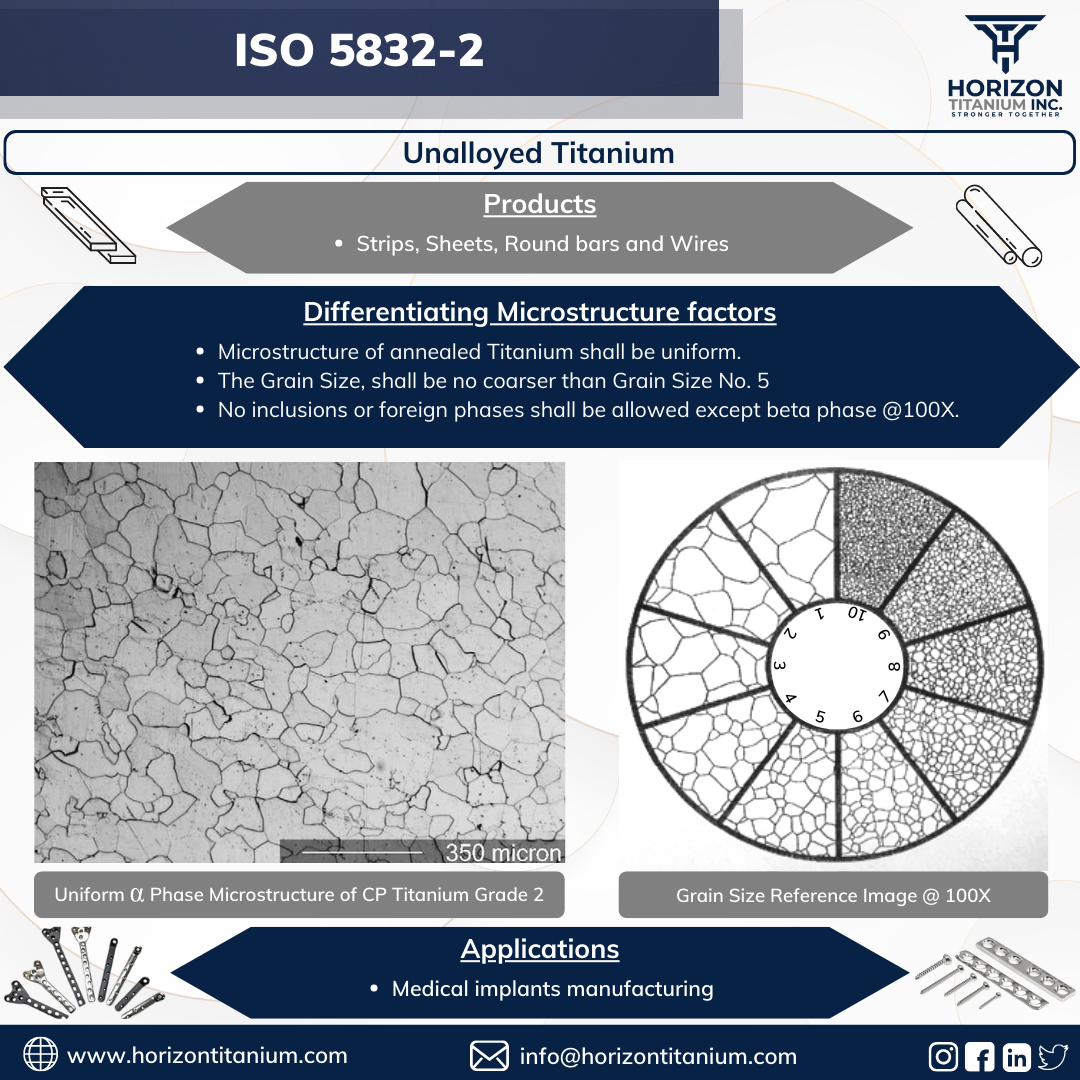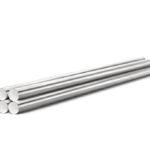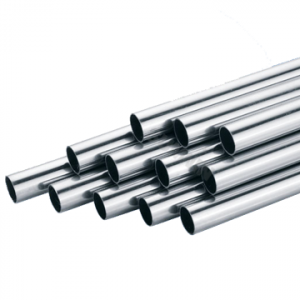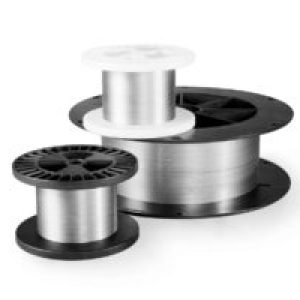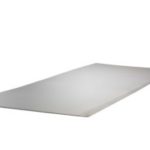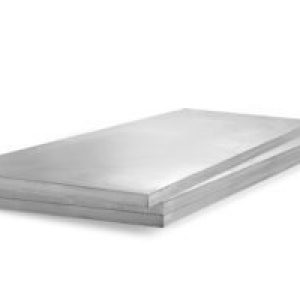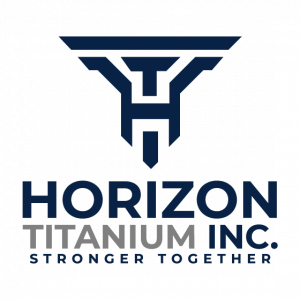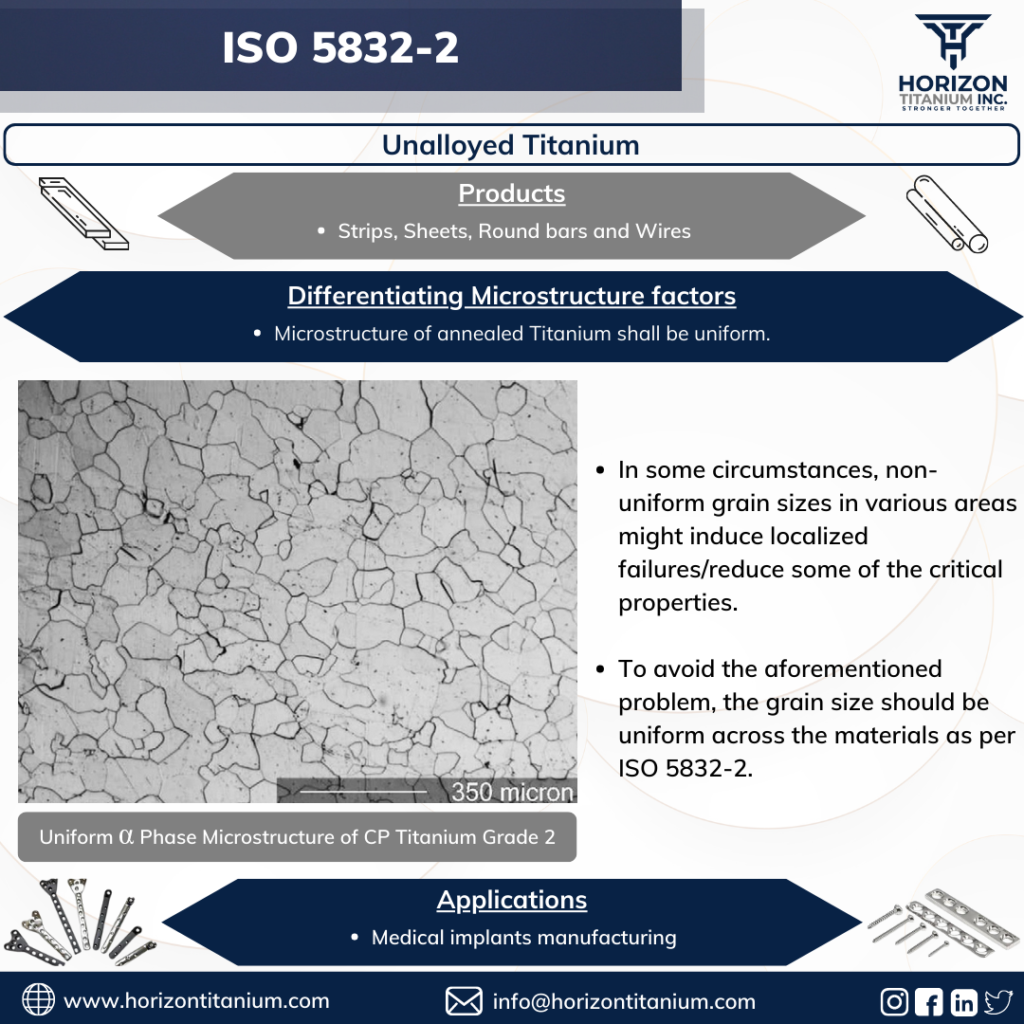

The ISO 5832-2 specification qualifies Unalloyed Titanium Grades for medical applications.
These specification grades are used in medical implant manufacturing because they have stringent microstructure requirements such as uniform alpha phase distribution, grain size, and no foreign phases (Alpha case), which can improve Unalloyed Titanium properties.
Because there are fewer grain boundaries with coarser grain sizes, the mobility of dislocations is not as restricted. As a result, the strength of Titanium implants with the coarser grain is less.
With fine grain size, there are a large number of grain boundaries that obstruct dislocation migration as we apply stresses to Titanium. As a result, it improves the strength of a Titanium implant.
If the grain size of Titanium materials is not uniform, there will be different properties at different locations, which is inappropriate for the long life of Titanium implants.
If the grain size of Titanium implants is uniform throughout the Titanium implant, it can have homogenous properties, and an implant can last longer in the human body.
That’s why ISO 5832-2 states that the grain size of Titanium material used for medical applications should be uniform and with a grain size 5 or finer.
To explain the alpha case, we will make a separate post as it is a common requirement for all medical Titanium grades.
For any information regarding Titanium metallurgy, you can write us at info@horizontitanium.com

